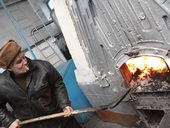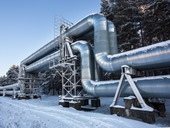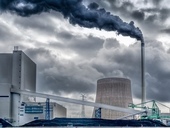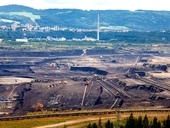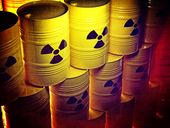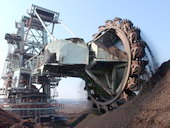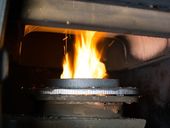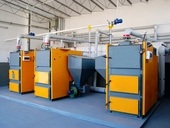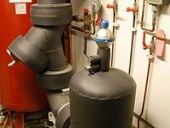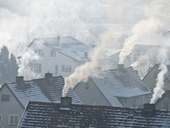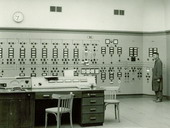How does the subsidy for boilers with biplanes? It's a fairy tale, and fairy tales are mere fiction. In other words, every author in his tale that might suggest what he wants. This will, inter alia, trying to do a little of the horror genre enjoyable and I hope too that it reduces the possibility for me to sue the speech.
Archiv článků od 23.11.2015 do 7.6.2016
Article features basic relations for determination of heat loss at warmwatter tube with thermal isolation from differences of flue watter temperature and ambient air temperature at planar and cylindric form. Calculation coming-out from coefficient of heat transmission according to coefficient of thermal conductivity and coefficents of heat transfer.
Problems fraudulent coal boilers included in EU subsidies for replacement of old boilers in the Czech Republic has already begun in a big deal in czech media. Czech Television aired May 30, 2016 report on substandard subsidized boiler and identified him as FD Automat by Slovak producer ATTACK, s.r.o.
Britain, once a world leader of the Industrial Revolution, temporarily phased out all its coal power plants on May 10th. Electricity generated from coal is getting no more prosperous due to stricter pollution limits, competion of renewable sources and lower gas prices. The British government announced a plan to get rid of all 11 coal power plants by 2025. The substitution of coal by other sources is also a trend elsewhere in Europe. Most European coal powerplants are over 30 years old.
Extraction and combustion of coal have changed the world and the climate of our planet within last two hundred years, but both are declining. This fact alongside with many others belongs to key messages of a new, representative publication, the Coal Atlas. Coal has started the industrial revolution and at the same time caused environmental and social destruction of large areas. At present, coal significantly contributes to climate change by being responsible for 43 % of global carbon dioxide emissions and more than one third of all greenhouse gas emissions respectively. Progressive countries are therefore leaving coal behind. What is more, consumption of coal has recently stagnated also in China, so far the biggest consumer. While the coal business seems to be inevitably coming to the end, some investors still hope for a profit. Why some buy something that the others consider as “stranded assets”?
In December 2015, the scoping stage of the Strategic Environmental Assessment (SEA) process on the Updated Concept of Radioactive Waste and Spent Nuclear Fuel Management began in the Czech Republic. The policy has processed only one option - a geological disposal facility in the Czech Republic. Second part of this article will look into the situation with radioactive waste management in the world.
In December 2015, the scoping stage of the Strategic Environmental Assessment (SEA) process on the Updated Concept of Radioactive Waste and Spent Nuclear Fuel Management began in the Czech Republic. The policy has processed only one option - a geological disposal facility in the Czech Republic. The first part of this article will look into the situation with radioactive waste management in the country.
This article deals with assessment of health and environmental impacts from potential continuation of brown coal mining in the North Bohemian Coal Basin. Four defined mining variants, which are related to a possible modification of the regional ecological limits in the opencast mines Bílina and Československé armády have been reviewed. The impacts are quantified in monetary terms – external costs – using the damage cost approach that reflects site-specific conditions of the assessment and enables us to structure the external costs estimates by the type of the impact on health, agricultural production and biodiversity. In the case of mining process, health effects due to dust emissions and noise pollution on the surrounding population were evaluated. The external cost assessment of extracted coal usage in the defined mining variants for energy purposes consisted mainly in quantification of the health impacts due to primary and secondary pollutants.
Interview about the direction of ecological heating Czech households and about looming problems with subsidies for the replacement of old boilers with Mark Rebicek, founder of the distribution companies of wood pellets CDP and director of Kloboucka Energo, which is a producer of ENplus certified pellets Waldera.
The article refers to the new European subsidies for the replacement of boilers in the Czech republic. The author responds to the statement of the Minister of the Enviroment Richard Brabec who said, that the much debated permision to subsidize boilers, which were not verified by an independent authorized person, was necessary because of the requirements of the European legislation.
This article reflects the author's view on the issue of emissions from the combustion of solid fuels in small combustion appliances and theirs decreasing by subsidy for boilers’ change. For maximum efficiency of subsidies, author recommends: 1) replace old boilers with modern gasification and automatic boilers, 2) subsidize only boilers certified by independent accredited laboratory, 3) optimize settings of newly installed boiler according to the measurement of flue gas composition and efficiency, directly at the new operator, 4) periodically check emission parameters in real conditions.
Article is dealing with gasification principles and gasifiers. Gasification is process for gas producing from solid fuels (coal, wastes, biomass). Producer gas can be used in cogeneration unit (piston engine or combustion turbine) for generating of heat and electricity with higher efficiency in comparison with combustion in boiler. All processes in gasifier taking place with regulated supply of gasification media (air, oxygen or steam) and reaction heat.
Methods of cost allocation in apartment buildings have undergone significant changes in recent years. The article offers a comprehensive overview of cost allocation methods in multi-dwelling units according to applicable regulations. It is intended mainly for owners of residential units, board members of homeowners associations, managers of housing cooperatives or individuals and companies managing residential buildings.
Cost allocation in apartment buildings is currently governed by two laws: Act No. 67/2013 Coll. and the new Civil Code No. 89/2012 Coll. These laws governed cost allocation in calendar year 2014 and apply also for 2015. The heating and hot water supply costs in MDUs from 2016 onwards will be allocated pursuant to the new decree No. 269/2015 Coll. and the amended Act No. 67/2013 Coll.
The aim of electricity distributor is that customers may be sourced if a constant amount of energy. When properly appliances division into groups according to how they can be turned off, it is possible to reduce the agreed value of the load shedding and save on fixed fees. The regulator load shedding so in the short term applies.
In a previous article we described current problems of district heating. Their creation is shared by all stakeholders - customers, suppliers and the state. The only difference is that while consumers and suppliers are more or less at the mercy of events, the state is the one who will decide on the future success or failure of the sector. And in this role still failing. The state should support the heating industry, but instead he openly harms.
zpět na aktuální články
